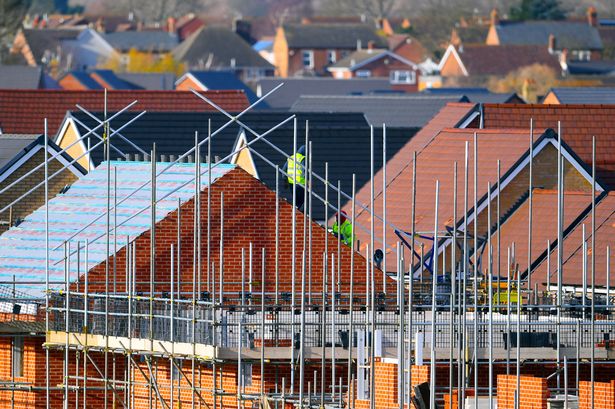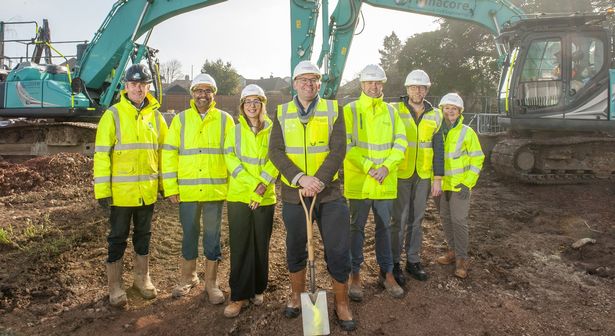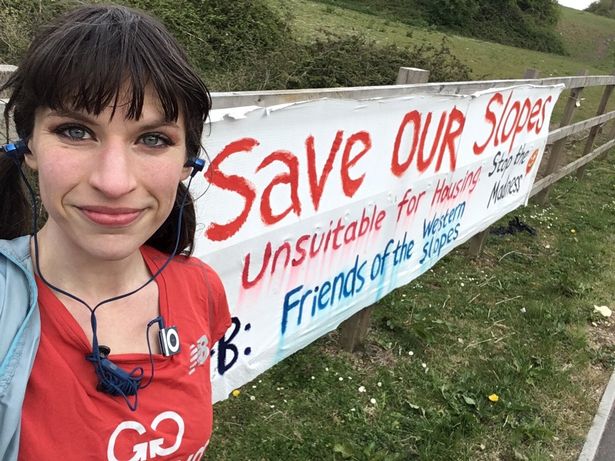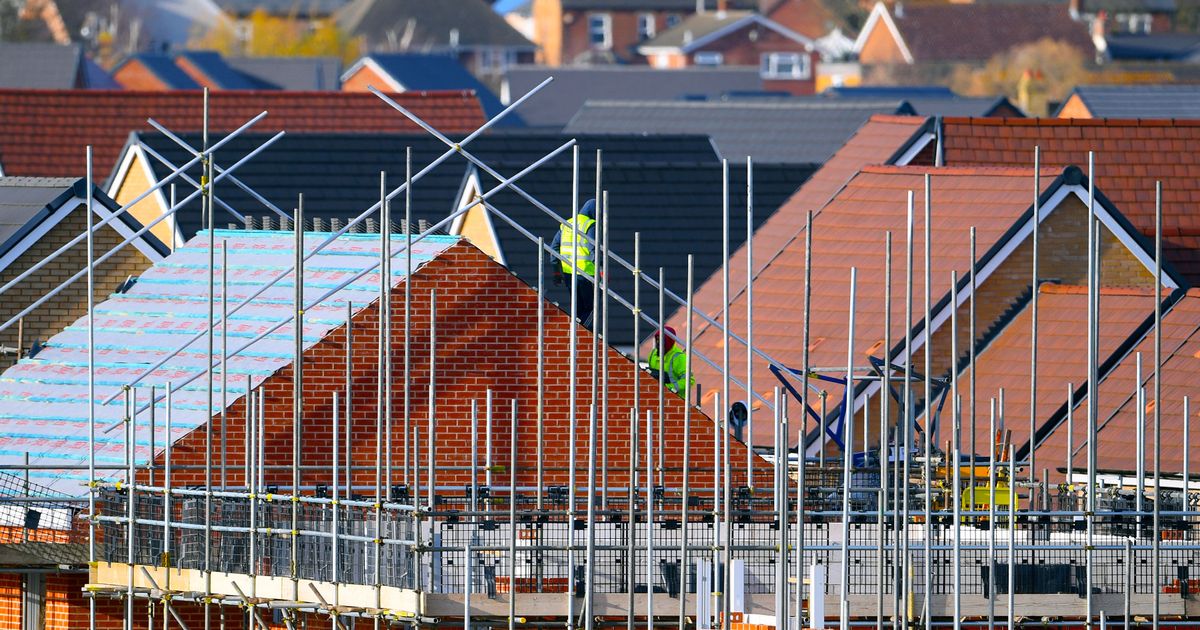The Government will now drop the probe into some of the biggest housebuilders in Bristol A newbuild housing development(Image: PA)
A newbuild housing development(Image: PA)
An investigation into allegations of market and competition collusion by seven of the nation’s biggest housebuilding companies has been dropped by the Government’s competition watchdog after the developers offered to pay £100 million into the nation’s affordable housing subsidy pot.
The seven firms, who are responsible for most of the new-build housing developments in and around Bristol, denied they had broken the law but offered to make the financial contribution alongside making ‘commitments’ not to share information about their business which each other.
The Competitions and Marketing Authority began investigating last year after a major report found housebuilders were holding back building new homes to restrict supply to keep the prices of new homes up. The report also triggered the investigation into whether the seven big developers were allegedly illegally sharing information about demand for new homes, sales, prices, special deals and even information about the kinds of people coming through the door of sales offices at new-build developments.
The CMA began investigating because such sharing is potentially illegal, and could mean the housebuilders were colluding to keep prices high, slow down the pace of housebuilding and damaging the interests of the customers.
In the summer, Bristol Live reported how housing crisis campaigners were left furious by the offer from the seven housebuilders under investigation. The deal they proposed was to pay £100 million to the Government’s Affordable Housing budget, made legally-binding commitments not to share such information, and in return, the CMA would drop its investigation – which could potentially have led to criminal prosecutions.
The CMA began a public consultation into the offer, asking people what they thought about potentially accepting it. Hundreds of individuals, housing charities and campaign groups contributed, raising questions about the small amount of the affordable housing contribution, the message the deal would send to the public, and whether the commitment not to share information would be abided by or be enforceable.
READ MORE: Fury at developers’ £100m ‘pay off’ to avoid competition investigationREAD MORE: Social housing plea for huge Fishponds development amid gentrification fears
People also pointed out the housebuilding companies may well be able to write off the collective £100 million payment against their tax bill, so it wouldn’t cost them anything anyway – and raised the possibility that some or all of the housebuilders making the collective £100 million payment could well receive the money back from the Government when it subsidises housebuilders to include affordable homes in their developments.
Now, in a new report, the CMA has outlined all the objections, but said it was happy to accept the deal, and drop its investigation.
“Several responses to the consultation stated that they considered the amount of the Affordable Homes Payment to be too low,” the report from Geoff Steadman, the director of competition enforcement at the CMA, said. “Some responses raised concerns that the resolution of the Investigation by means of the CMA accepting commitments means that there will be no compensation for consumers or that it will be harder for consumers to obtain such redress,” he added.
“The CMA has not made any finding on whether the parties infringed competition law. Even if the CMA were to proceed with the Investigation and were to find an infringement, the CMA would not have the power to establish a redress scheme to directly compensate consumers or any other third parties.
“The CMA considers that inclusion of a significant ex gratia payment of £100 million, in addition to behavioural commitments, will help to ensure that acceptance of the Commitments will not undermine deterrence.
“The CMA has concluded that the Commitments address the CMA’s competition concerns and that it is appropriate to accept the Commitments for the purposes of addressing those competition concerns,” he added.
Who are the developers?
Seven developers were named in the original investigation, which was launched in 2024 after a year-long market study into barriers leading to the undersupply of new homes in the housebuilding sector.
It was claimed they shared what should be commercially-sensitive information with the allegation that this was done to ‘prevent and distort’ competition. Industry experts said sharing information on prices and demand would better inform supposed rivals about the speed with which they should be building homes to maximise profits.
The seven developers are Barratt Redrow, which recently merged, Bellway, Berkeley Group, Bloor Homes, Persimmon, Taylor Wimpey and Vistry. In making the offer, all seven housebuilders have denied any wrongdoing.
The seven housebuilders’ most recent reported profits were almost all down on previous years, but combined, the seven still made more than £1.7 billion in pre-tax profits in the last financial year between them. That means their share of the £100 million pay out would represent around five per cent, on average, of each of the housebuilders’ profits for just one year.
READ MORE: Villagers’ outrage as new suburb proposed on the edge of BristolREAD MORE: Work on Bristol’s new 1,400 home suburb will finally start this year
Barratt Redrow recently completed the big redevelopment of part of the Frenchay Hospital site in north Bristol, and are behind controversial plans to build 150 homes in Hanham and up to 200 on land that was part of Yew Tree Farm in South Bristol.
Bellway has plans to build 555 new homes next to the park and ride in Brislington, and 150 new homes on the Flowers Hill site in Brislington.
Bloor Homes is building thousands of homes in South Gloucestershire, including 950 in Warmley, 250 in Charfield and recently sparked the fury of the local MP for unveiling plans to build 450 new homes on Green Belt land on the edge of Coalpit Heath.
Persimmon Homes is building hundreds of new homes on the western end of the former Filton Airfield site between Brentry and Cribbs Causeway, while Taylor Wimpey recently began a public consultation on homes on the edge of South Bristol in Highridge. They are also the developer behind plans for new homes in Mangotsfield and a new town on the edge of South Bristol, on the site of what is now the Woodspring Golf Club at Barrow Gurney.
 Councillors and bosses from Goram Homes and housebuilder Vistry celebrate work starting at New Fosseway, a site for 200 new homes in Hengrove, South Bristol(Image: Goram Homes)
Councillors and bosses from Goram Homes and housebuilder Vistry celebrate work starting at New Fosseway, a site for 200 new homes in Hengrove, South Bristol(Image: Goram Homes)
Vistry are the preferred partner of Goram Homes, Bristol City Council ’s housing development company, and have teamed up with Goram to start building more than a thousand homes on Hengrove Park and near the Wells Road in Hengrove, and in Lockleaze, while they have partnered up with Taylor Wimpey to propose hundreds of new homes on the edge of Whitchurch Village.
The seventh firm, Berkeley Homes, is developing the One Waterside development in the heart of Bath, and also owns a series of subsidiary housing development companies active in the Bristol and Bath area. They are named St William, St George, St Joseph, St James, St Edward. St William is currently behind plans to build 600 new homes on the site of the old gasworks in Bath.
What do campaigners say?
Environmental campaigners, who for years have been calling out housing developers’ practices to restrict supply as one of the causes of the housing shortage in and around Bristol, have been left outraged by offer and the CMA decision.
Danica Priest, who led a campaign to save the Northern Slopes wildlife habitat in South Bristol from housing development and is a prominent environmental campaigner on social media, was one of those who contrbuted to the CMA consultation.
 Campaigner Danica Priest on the Western Slopes, between Knowle West and Hartcliffe Way in Bedminster, which are under threat from development(Image: Danica Priest)
Campaigner Danica Priest on the Western Slopes, between Knowle West and Hartcliffe Way in Bedminster, which are under threat from development(Image: Danica Priest)
“I can’t stress how concerning this is,” she said. “The house builders just bought their way out of a very serious investigation. That should scare all of you. Let that sink in.
“This is why we have a housing crisis, not bats. They didn’t agree to pay this money to the CMA as a settlement after an investigation, they paid to stop an investigation that started so no further investigation would happen. That should not be happening,” she added. “No one should be able to pay to end an investigation.”
